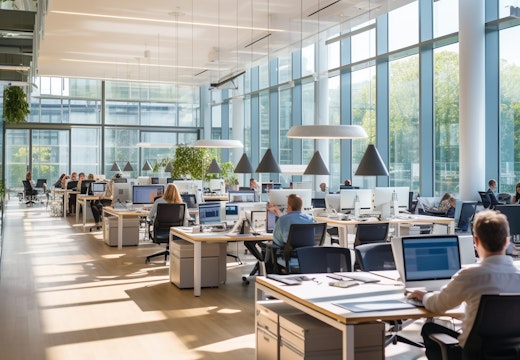Thriving at work: how to help employees flourish, not just function
As organisations face pressure to enhance performance, companies should pivot towards helping employees flourish at work, as the upcoming WORKTECH Sydney 2025 conference will explore
The big question: has hybrid work broken knowledge work?
German author and researcher Markus Albers warns that the digital promise of flexible work may be backfiring – and calls for a new narrative on what success really looks like
The office as ecosystem: Berlin’s bold vision for the workplace
From liquid real estate to human-centred AI, the WORKTECH25 Berlin conference showcased dynamic responses to Germany’s rapid pace of change
Is Generation Z signalling the end of formal full-time employment?
From independent work to the allure of working from anywhere, the latest generation entering the workforce are turning their backs on traditional models of office work
Breaking the banking box: how financial workplace is busting boundaries
From AI-powered office planning to hospitality-driven employee experience, the Future Financial Workplace event in New York highlighted where the banking industry is heading next
Can flexible work policies reverse impact of ageing population?
As birthrate decline threatens economic growth and workplace dynamics in Europe, could flexible work policies inspired by Japan offer a solution to reverse the trend?
Looking ahead: the future workplace as an experience multiplier
From sustainability to the rise of Class A developments, Gensler’s design forecast for 2025 outlines the industry-specific strategies that will redefine work and workplace design in the year ahead
The science of seating: how variety drives employee experience
Despite a general trajectory towards unassigned seating in offices globally, new research by Leesman finds that not everyone is ready for change. What matters is variety of settings












